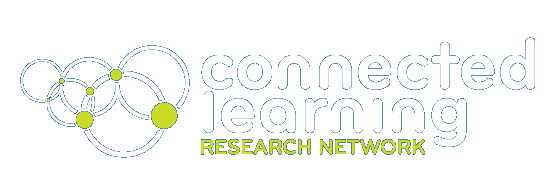A Delicate Tension: Where Gaming and Education Intersect
February 19, 2013
PROJECTS: Leveling Up
PRINCIPLES: Academically oriented, Interest-powered, Peer-supported
TAGS: Connected Learning, Guest blog, StarCraft II
Guest blogger biography: Stephen Paolini is a junior at Winter Park High School in Winter Park, Florida. His interest in the concept of interest-driven community stems from his experiences with his unique family structure and the International Baccalaureate program, an internationally constructed college prep program created to provide a rigorous all-around curriculum. With a passion for connected learning, Stephen has always been interested in gaming, education and the integrated role they play in a modern society.
As a kid, my family had always found video games to be a means of bonding. My father, who’d grown up in the dawn of the gaming age, brought us up in the light of competitive games such as Warcraft 3 and Starcraft: Brood War. My father, two brothers, and I would sit around our small musty upstairs room almost every night with four computers hooked up, facing one another in rigorous competition. It was not until we began to find interest in open world, and later, massively multiplayer online role-playing games, that I first noticed how I began to change while playing video games.
The negative effects of gaming are frequent talking points in the media, especially with reference to education and motivation. While the conversation has persisted since the inception of violent video games, the claims that video games can cause addiction, violent behavior, and social anxiety have never been substantially validated by research. Still, the popular belief that video games are epitomized by violent games, such as Modern Warfare and Grand Theft Auto, pervades the educational argument for gaming and its interest-based communities. Contemporary psychology and modern philosophy intersect with the same question: Is there a place for gaming in youth education? This article will seek to remind us that learning and gaming are not antithetical.
One of the first games we played together as a family was an open world adventure puzzle game by the name of Twinsen’s Odyssey. The game provided a platform for intensified familial competition. I developed an appreciation for the world’s natural ambiguity and for stories with no definite answer or direction. The game forced me to create answers for myself, to find direction where there was none, and punished me for assumptions and flaws in how I approached problems. Throughout my experience in education, these mental processes became critical to analytical, synthesis and problem-solving skills. Math skills were not merely a problem and its solution; they were about the process. The value of knowledge was not measured by the quantity of information that you possess, but by the quality of approaches you could use to solve the same problem.
Through late-night LAN1 parties with my brother’s high school friends at the age of eight and extensive role-playing runs even earlier, I learned that presenting oneself as mature was key to gaining acceptance in player communities. Through this exposure to my brother’s friends, many of whom were close to ten years older than me, I learned how to be competitive in a world far above my age. I found myself attempting to improve my vocabulary to sound like them, creating extensive biographies of characters to appear as engaged as they were, and adapting to the flow of success and failure as they had. When it came to education, I learned that success hinged upon dedication, upon learning to prepare myself to be competitive in the real world, and upon finding my passion for writing and storytelling. I honed these skills and developed these interests in the ornate halls of World of Warcraft, in the text-based, imagination-driven chat rooms of Dungeons & Dragons and in the competition of Starcraft Real Time Strategy. Reading was an extension of the lustrous worlds I had created as dungeon master; grades, the final frontier of my Starcraft competition; and writing maturely, a reflection of my time in the vanilla2 years of World of Warcraft.
For my eight-year-old self and my twelve-year-old brother in the summer of 2005, World of Warcraft had quickly become the principal medium for brotherly bonding. That summer, in an all too sunny July day, we sat cross-legged in our room surrounded by stuffed animals and an excessive supply of paper, pencils and crayons. We had set out to create life–not just characters in a graphically-created 3-D computer world but real, tangible, and adventurous life. On that sunny day, we had decided to create a guild. We drafted character bios, guild backgrounds, mottos, speeches, storylines, role-playing guides, and an all important banner that seemed absolutely essential for our computer game guild. Most of these aspects were entirely unsupported by the game’s function, but for two imaginative brothers the world held so much more than innovative combat algorithms and flashy special effects. The world was a place to siphon and grow the seeds of our passion for writing. That day, the Tradelords were born: an eccentric guild focused on the loosely-developed auction house system. But our purpose was not about practicality or game mechanics; the Tradelords symbolized our passion for imagination and creativity. Later in my academic journey, this passion grew and launched me far ahead of the curve armed with a love for reading, writing and a comprehensive vocabulary.
This pattern continued in high school, as I was introduced to new social spheres that echoed these passions as well. I had my first experience with an interest-based community: a world of people competitively driven by an intrinsic motivation, almost zealous protection of their community. A group of IB3 students I had met playing online in Starcraft quickly became a community of competition and mutual growth . This began to integrate further into our lives; it wasn’t just Starcraft–it became everything. My Starcraft 2 community had become the desperately needed support for my passion in education.
On a suffocatingly hot September day, the humidity seemed incapacitating as it combined with my frustration and anger. Just a few months earlier I had come up with an idea that, as idealistically as always, I would fix education in one fell swoop. I formed a club, Meeting of the Minds, dedicated to the principle of identifying problems and creating practical solutions. We deliberated for months in our small Pre-Calculus sponsor room in the upstairs 300 building every Monday from 2:17 till 6:30. We crafted a plan: a single day event to raise awareness for emotional intelligence, civic activism, and teacher mentorship in education. As the proposed event date drew nearer, we chose a day to present our comprehensive attempt at saving the world to our High School principal: September 23.
I remember the feeling when those I talked to responded that my ideas were impractical, that the teachers would never agree to be a part of the plan, and that students would be uninterested. My anger was palpable, my body tense with frustration. My attempts to fix education and to be a part of a larger movement had failed. I remember the feeling of polarization, how I was absolutely certain education was beyond repair as I spouted my rage to friends on Facebook that night. I had expected affirmation, how I was right in giving up on traditional education. Instead I found myself within a sea of support for my idea. I found myself with friends who would hang up signs, write letters, and attend follow-up meetings to support my dream.
As September 22 turned into September 23 and 2:16 to 2:17, I remember the feeling that everything I was about to do and everything I would do had so rightly relied on the friendships that would support me and the feeling of peace that I knew they would. The night before, Kala, a friend I’d known only through our interaction in the real-time strategy game Starcraft, had told me that he would be right behind me, no matter what I needed to make this happen.
My group of Starcraft friends changed from simply a group for gameplay to a community in which my friendships integrated into my school life, in restoring my passion for education, as well as my civic life, in restoring my passion for progress and my understanding that education could foster positive change.
I don’t mean to suggest that all video games create within all people this same intrinsic and group identity-based support for learning. However, in a society where competition is ingrained in our daily lives, the benefit of a generation passionate about collaborative learning, re-focused on mutual growth, and surrounded by interest-based communities cannot be overstated. The true value of gaming can be found in its role in fostering many such interest-based communities and providing a platform for a future where collaborative learning and mutual growth can be commingled with competition and success. In combination with the right family, the right group of friends and the right state of mind, gaming can provide support and instill a passion for education, the development of academic skills, social connectedness and lifelong learning.
1 LAN is a gamer term for a party in which a group of friends use a Local Area Network to play games offline but together.
2 Vanilla years is a gamer term for the early stages of a game before expansion packs or even extensive popularity and is often associated with a degree of nostalgia.
3 IB is an acronym that stands for the International Baccalaureate program, a comprehensive and internationally recognized all-around college prep program.


